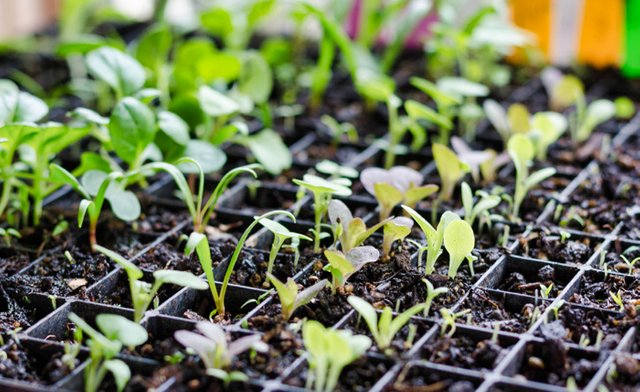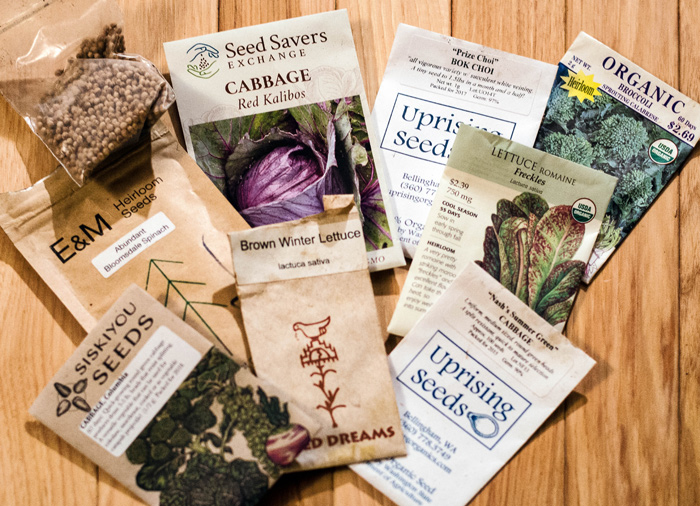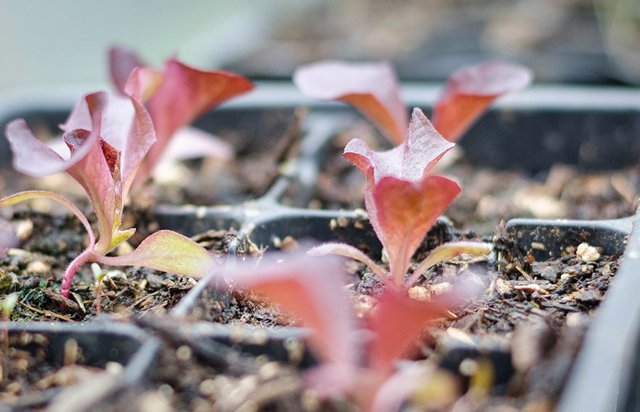Why You Need Local, Open-pollinated Seed for Your Gardens
Spring is right around the corner and that means it’s time to start thinking about our gardens. For some of us, it’s already time to start our seeds. If you didn’t save your own for starting this year, finding a good source for seed can be a bit challenging, especially if you’re growing organically. I’m not saying there aren’t plenty of organic seed companies out there—there are. But finding good sources for local, untreated, open-pollinated seed might be hard to come by, especially if you don’t live in a region that has a lot of sustainability-minded folks.

Why is it important to buy local seed? Well, local seed is better adapted to the growing conditions in your region. Seeds produced in one region and then raised in another can struggle when defending themselves against local pests and diseases. In the words of Andrew Still of Adaptive Seeds, “Locally adapted seeds are extremely resilient, they have a sense of place, and they tolerate the pressures and the troubles really well.” It also helps the local economy and keeps the local food web alive.
Why open-pollinated? Well, it’s pretty similar to open-source (and Steemit!) Hybrid (F1) plants don’t create seed you can save. That means you have to be eternally dependent on the seed company that sold the seed to you. It also means that the plants never have a chance to adapt to your local growing conditions. If you’re growing largescale monocrops, that might be fine. But if you’re into food sustainability, you’ll want plants that can reproduce, freeing you of having to rely on large corporations. Also, once adapted to local conditions, open-pollinated varieties will usually outperform non-open-pollinated varieties. Also, similar to big proprietary software companies, proprietary control schemes such as patenting. hybrids (F1), and trademarking stifle diversity and innovation. True food freedom—like internet freedom—relies on open pollination.

Luckily here in Cascadia (the Pacific Northwest US), we have no less than 13 different seed companies doing their part to reverse the trend towards monoculture. Since I just moved from the Olympic Peninsula (where there are at least six different seed companies all right next to each other to a farm closer to Corvallis, I’ve been having to do some local research to find a source for seed. (Sure, I save my own, but these companies have far more varieties than I could ever produce and some seeds need a LOT of isolation for other similar plants to breed true.)
In the photo above you can see some of the starts I've already started in my greenhouse. All but the Seed Savers packet come out of Cascadia. Seed Dreams and E&M seeds were located within 20 miles of my farm up in WA. (I'm still waiting on my local-to-this-area seeds to arrive--I ordered them online though the farm is only about 40 miles away.) Below are some of my Merlot lettuce starts.

So, believe it or not, most of the reasons to support open source technology are the same for open-pollinated seed. (Except in the case of plants and food, local is best.)
Where do you live and what seeds do you use? (Maybe it can help others on this list find good sources!)
You have the choice between thousands of varieties.
I am living in Annecy and part of http://lesincroyablescomestibles.fr/ the French incredible edible.
Those babies look great! We use 95% own seed, the other 5% we get via community swap.
https://steemit.com/gardening/@bobydimitrov/a-blossoming-garden-is-an-invitation-for-seed-saving
Most of our brassicas go to seed at the same time...it's hard to keep them true...(that's why you see mostly brassicas in that photo) :-)
excellent I love to plant, all the steps the whole process
Same here. There's nothing like growing food!
You have received an upvote from @livesustainably. I promote and curate content that encourages and educates others in living sustainably. You can support the live sustainably cause on Steemit by upvoting, resteeming and creating content under the tag #livesustainably.